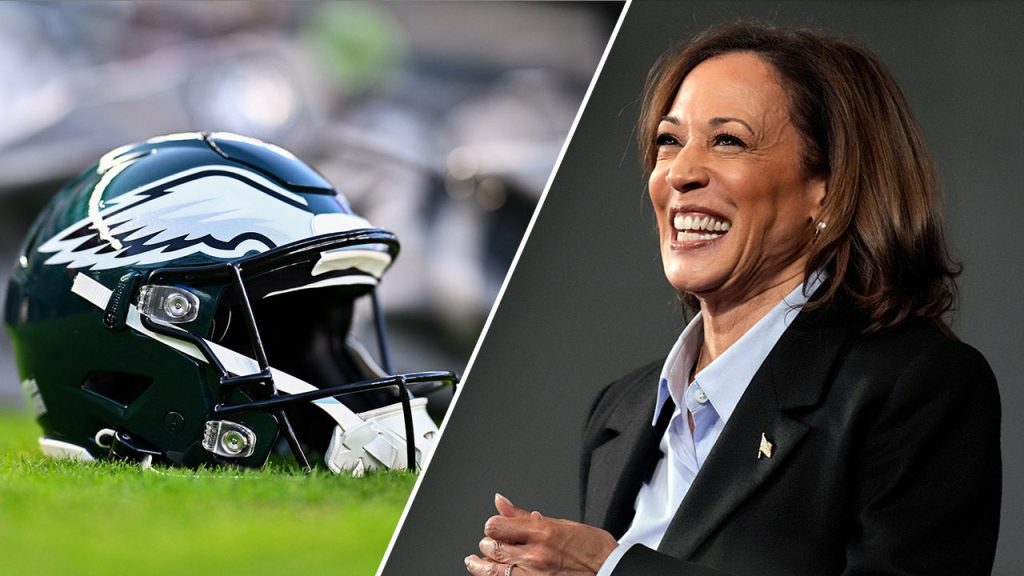A poster featuring Kamala Harris in Philadelphia Eagles gear with the caption, “Kamala, official candidate of the Philadelphia Eagles,” was discovered at a bus stop in Philadelphia and later confirmed to be a counterfeit piece. The artist behind the poster, Winston Tseng, claimed that the artwork was intended to be a satirical piece and not meant for public display. Tseng explained that the poster was a commentary on the practice of celebrities or sports entities endorsing political candidates, rather than a promotional tool for the Harris campaign. The poster drew attention to the issue of why society places importance on celebrity endorsements in the political sphere.
The posters were first seen in various locations around Philadelphia, including 16th and Spring Garden streets, 18th Street and JFK Boulevard, and 34th and Walnut streets. They featured a URL that directed to an Eagles voting website with information on previous Pennsylvania and New Jersey primary election deadlines, voting locations, and guidelines for first-time voters. Tseng has a history of creating similar posters that appropriate official company brands, such as a Ben & Jerry’s-themed poster of President Biden and a Pepto Bismol-themed poster of former President Trump. The Harris Eagles posters coincided with the upcoming presidential debate between Harris and Trump at the National Constitution Center in Philadelphia.
The posters elicited a strong reaction from some Philadelphia residents, with one individual named Joe taking it upon himself to cover up the posters with printed-out screenshots of the Eagles’ official statement denouncing them as counterfeit. Joe expressed concern about the spread of misinformation and dishonesty during the election process, particularly in a battleground state like Pennsylvania. A city spokesperson suggested that someone may have broken into a secured space where bus station posters are stored and replaced legitimate posters with the counterfeit Harris endorsements, leading to a plan to conduct a full inventory of all bus shelters to remove any illegal posters.
According to electoral and polling analysis, Pennsylvania could play a crucial role in the 2024 presidential election, with the state potentially serving as a “tipping point.” Betting odds favoring Harris in Pennsylvania showed her winning 270 electoral votes compared to Trump’s 268, but a win for Trump in the state would give him 287 electoral votes to Harris’ 251. Recent polls indicate that Trump has been gaining ground in Pennsylvania, narrowing Harris’ previous lead. The attention and controversy surrounding the counterfeit Harris Eagles posters reflect the high stakes and competitiveness of the political landscape in the state.
Tseng’s artistic creations, including the counterfeit Harris Eagles poster, aim to use satire and parody to address societal issues and question the significance of celebrity endorsements in politics. By appropriating official brand imagery and repurposing it for his artwork, Tseng highlights the intersection of consumer culture, advertising, and politics. The reaction to his posters in Philadelphia underscored the impact of visual messaging and the importance of accuracy and transparency in political communication, especially in a critical election year. The controversy surrounding the counterfeit posters serves as a case study in the power of art and messaging to shape public perceptions and spark meaningful dialogue about the role of art in politics.


